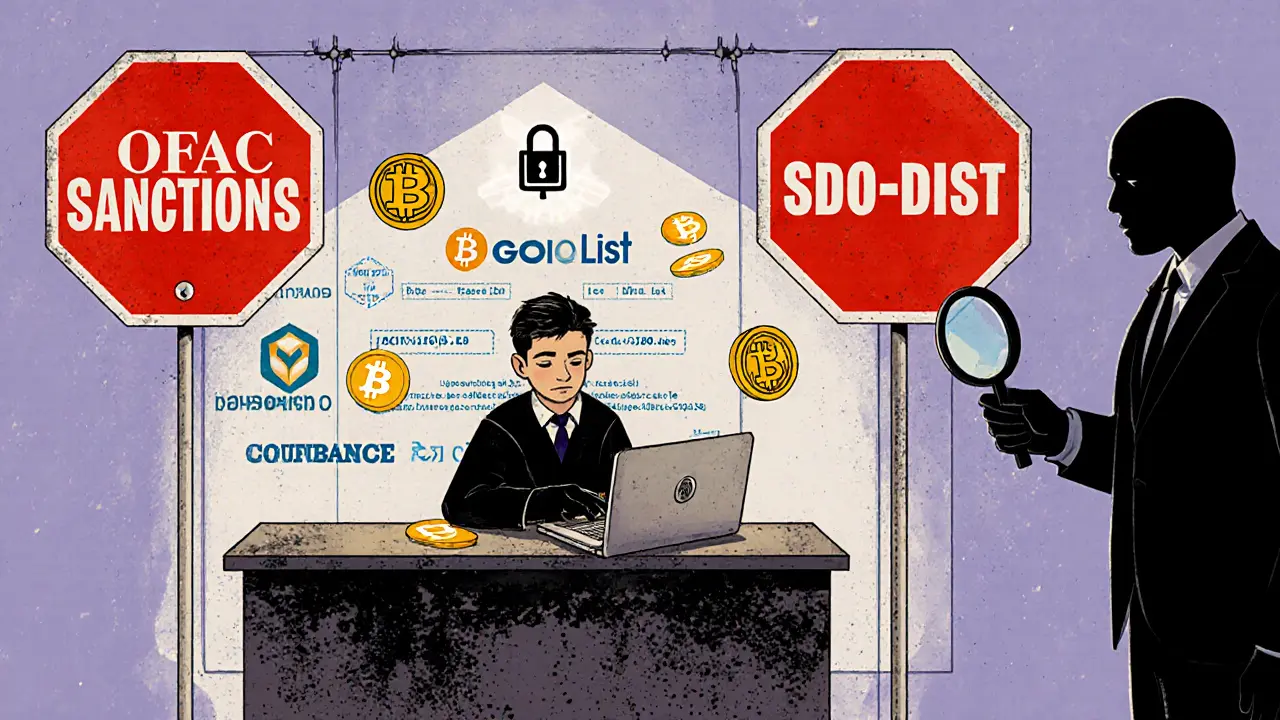Crypto Sanctions: What They Are, Who They Target, and How They Impact Your Wallet
When governments impose crypto sanctions, official restrictions on cryptocurrency transactions, wallets, or exchanges tied to specific countries, entities, or individuals. Also known as digital asset freezes, these measures block access to blockchain networks for targeted users—often to enforce political, economic, or security policies. Unlike traditional banking bans, crypto sanctions don’t always require intermediaries. A wallet address can be blacklisted, a decentralized exchange can be pressured to delist tokens, or a country’s entire crypto sector can be outlawed—like in China or Bangladesh.
AML compliance, anti-money laundering rules that force crypto businesses to verify users and report suspicious activity. Also known as KYC enforcement, it’s the backbone of how sanctions are applied in practice. If you’re using a regulated exchange like Bitstamp or Taurus (the real Swiss one), they’re legally required to block transactions linked to sanctioned addresses. But if you’re trading via P2P platforms in Russia or Bangladesh, you’re often operating outside these rules—making your activity riskier, not safer. The same goes for MiCA, the EU’s comprehensive crypto regulation that forces exchanges and service providers to get licensed, report on environmental impact, and follow strict governance. Projects that can’t meet MiCA’s capital or transparency requirements—like many fake airdrops and zero-team tokens—are being pushed out of the market.
What does this mean for you? If you’re holding tokens tied to a project with no team, no whitepaper, or no exchange listing—like eMetals (MTLS) or ALF Token—you’re not just risking volatility. You’re risking being caught in a future sanction sweep. Even legitimate-looking airdrops like FARA or ART Campaign turned out to be scams, and now those wallets are likely flagged as high-risk. Meanwhile, Chinese crypto holders have zero legal protection, and Russian users buying crypto with rubles are walking a legal tightrope. The message is clear: crypto sanctions aren’t just about politics—they’re about survival in the digital asset space.
Below, you’ll find real-world breakdowns of what happens when governments crack down, how exchanges respond, and which projects are most vulnerable. No fluff. Just facts from the front lines of crypto regulation in 2025.
OFAC Sanctions on North Korean Crypto Networks: How the U.S. Is Targeting $2.1 Billion in Stolen Crypto
by Johnathan DeCovic Feb 12 2026 12 CryptocurrencyOFAC has targeted North Korean crypto theft networks that stole over $2.1 billion in 2025, using fake remote IT workers to infiltrate U.S. crypto firms. This is not hacking - it's corporate espionage with direct ties to weapons programs.
READ MOREOFAC Sanctions and Iranian Crypto Access to Exchanges: How Restrictions Block Transactions
by Johnathan DeCovic Nov 11 2025 24 CryptocurrencyOFAC sanctions block Iranian access to major crypto exchanges by targeting specific wallet addresses and shadow networks. Exchanges face heavy fines for non-compliance, forcing users toward risky P2P and decentralized platforms.
READ MORE

